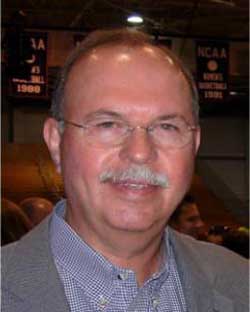Filed Under > Convocation
David Wright: Probing Youthful Apathy at the Polls
Most people go to graduate school to launch careers, but David L. Wright did the reverse.
Having grown up in a family that considered voting both a privilege and a duty, Wright came to TC to explore a statistic that particularly troubled him: low voter turnout for 18-to-20- year olds. This group has relatively high education levels, and research shows that educational attainment is one of the strongest and most consistent predictors of whether a person will vote. Young people, “the nation’s future leaders,” also have “the most to gain or lose from government decisions,” Wright points out in his dissertation. But voter turnout among this age group has been the lowest of any age category since the voting age was lowered from 21 to 18 in 1971.
So, why aren’t more young people going to the polls, Wright wondered.
Wright found an answer in education – or, rather, the lack of it. Just as early childhood is a make-or-break period for stoking the brain with language, mathematical and social skills, the end of high school and the beginning of college are a critical window for instilling a commitment to citizenship. Wright argues that high schools are failing to deliver civics curricula that are engaging and relevant to students.
Schools need to emphasize civics instruction that is “both discussion-based and issue-focused,” he says, and state high school graduation requirements should include minimum competency in civics. Schools should increase opportunities for student government and civics-related volunteer activities, and civics content also should be embedded in English instruction.
Wright also believes that voter registration should be a voluntary but formal part of high school senior civics and college freshman orientation programs.
“A core tenet of representative democracy is that the electorate should reflect the population that is being governed,” he writes in his dissertation. “That the 18-to-20 year old citizen cohort consistently exhibits the lowest turnout of any age category means that its voice is persistently under-represented in national elections.”
Wright, who serves as an instructor in TC’s Education Policy and Social Analysis Department, plans to keep his hand in research and teaching. "I have a strong interest in educational reform and a particularly strong interest in democratic reform,” he says. “Based on my total experience in government, business and academia, I am convinced that evidence-based initiatives are essential to move things in the right direction.”
Published Friday, Jun. 7, 2013
